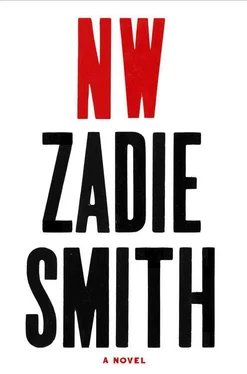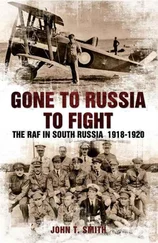A man and a woman, a couple, sat at a table opposite Natalie and Frank, having Saturday brunch in a café in North West London.
“It’s organic,” said Ameeta. She referred to the ketchup.
“It’s bad,” said her husband, Imran. He was also referring to the ketchup.
“It’s not bad. It doesn’t have the fourteen spoonfuls of sugar you’re used to,” said Ameeta.
“It’s called flavor?” said Imran.
“Just bloody eat it or don’t eat it,” said Ameeta. “Nobody cares.”
Around them, at other tables, other people’s babies cried.
“I didn’t say anybody cared,” said Imran.
“India versus Pakistan,” said Frank — he referred, in a jocular manner, to his friends’ countries of origin—“better pray it doesn’t go nuclear.”
“Ha ha,” said Natalie Blake.
They continued on with their breakfast. Breakfast tipped into brunch. They did this once or twice a month. Today’s brunch seemed, to Natalie, a more lively occasion than usual, and more comfortable, as if by rejoining a commercial set and acting, at least in part, for the interests of corporations, she had lost the final remnants of a troubling aura that had bothered her friends and made them cautious around her.
135. Contempt
The eggs came late. Frank argued chummily with the waiter until they were taken off the bill. At one point employing the phrase: “Look, we’re both educated brothers.” It occurred to Natalie Blake that she was not very happily married. Goofy. Made lame jokes, offended people. He was in a constant good humor, yet he was stubborn. He did not read or have any real cultural interests, aside from the old, nostalgic affection for 90s hip hop. The idea of the Caribbean bored him. When thinking of the souls of black folks he preferred to think of Africa—“Ethiopia the Shadowy and Egypt the Sphinx”—where the two strains of his DNA did noble battle in ancient stories. (He knew these stories only in vague, biblical outline.) He had ketchup by his mouth, and they had married quickly, without knowing each other particularly well. “I like her well enough,” Ameeta said, “I just don’t particularly trust her.” Frank De Angelis would never cheat or lie or hurt Natalie Blake, not in any way. He was a physically beautiful man. Kind. “It’s not tax avoidance,” said Imran. “It’s tax management.” Happiness is not an absolute value. It is a state of comparison. Were they any unhappier than Imran and Ameeta? Those people over there? You? “Anything with flour gives me a rash,” said Frank. On the table lay a huge pile of newspaper. In Caldwell, newspaper choice had been rather important. It was a matter of pride to Marcia that the Blakes took The Voice and The Daily Mirror and no “filth.” Now everyone came to brunch with their “quality” paper and a side order of trash. Tits and vicars and slebs and murder. Her mother’s pieties — and by extension Natalie’s own — seemed old-fashioned. “It’s an insurgency,” said Ameeta. Natalie pressed a knife to her egg and watched the yolk run into her beans. “Another thing of tea?” said Frank. They were all agreed that the war should not be happening. They were against war. In the mid-nineties, when Natalie Blake was sleeping with Imran, the two of them had planned a trip to Bosnia in a convoy of ambulances. “But Irie was always going to be that kind of mother,” said Ameeta, “I could have told you that five years ago.” Only the private realm existed now. Work and home. Marriage and children. Now they only wanted to return to their own flats and live the real life of domestic conversation and television and baths and lunch and dinner. Brunch was outside the private realm, not by much — it was just the other side of the border. But even brunch was too far from home. Brunch didn’t really exist. “Can I give you a tip?” said Imran. “Start on the third episode of series two.” Was it possible to feel oneself on a war footing, constantly, even at brunch? “She owns a child of every race now. She’s like the United Nations of Stupid,” said Frank, for one elevated oneself above an interest in “celebrity gossip” simply by commenting ironically on it. “A ‘romp’ with two strippers,” read Ameeta. “Why’s it always a ‘romp?’ I’ve never bloody ‘romped’ in my life.” Sexual perversity was also old-fashioned: it smacked of an earlier time. It was messy, embarrassing, impractical in this economy. “I never know what’s reasonable,” said Imran. “Ten percent? Fifteen? Twenty?” Global consciousness. Local consciousness. Consciousness. And lo they saw their nakedness and were not ashamed. “You’re fooling yourself,” said Frank. “You can’t get anything on the park for less than a million.” The mistake was to think that the money precisely signified — or was equivalent to — a particular arrangement of bricks and mortar. The money was not for these poky terraced houses with their short back gardens. The money was for the distance the house put between you and Caldwell. “That skirt,” said Natalie Blake, pointing to a picture in the supplement, “but in red.”
As brunch tipped into lunch, Imran ordered pancakes like an American. After decades of disappointment, the coffee was finally real coffee. Wouldn’t it be cruel to leave, now, when they’d come this far? They were all four of them providing a service for the rest of the people in the café, simply by being here. They were the “local vibrancy” to which the estate agents referred. For this reason, too, they needn’t concern themselves too much with politics. They simply were political facts, in their very persons. “Polly not coming?” asked Frank. All four checked their phones for news of their last remaining single friend. The smooth feel of the handset in one’s palm. A blinking envelope with the promise of external connection, work, engagement. Natalie Blake had become a person unsuited to self-reflection. Left to her own mental devices she quickly spiraled into self-contempt. Work suited her, and where Frank longed for weekends, she could not hide her enthusiasm for Monday mornings. She could only justify herself to herself when she worked. If only she could go to the bathroom and spend the next hour alone with her e-mail. “Working the weekend. Again,” said Imran. He had the fastest connection. “Shame,” said Natalie Blake. But was it? If Polly came she would only sit down and speak of her good works — police inquests and civil litigation and international arbitration for underdog nations; recently published opinions on the legality of the war. Headhunted by a new, modern, right-on set, where she was both very well paid and morally unimpeachable. Living the dream. It was the year people began to say “living the dream,” sometimes sincerely but usually ironically. Natalie Blake, who was also very well paid, found having to listen to Polly these days an almost impossible provocation.
136. Apple blossom, 1st of March
Surprised by beauty, in the front garden of a house on Hopefield Avenue. Had it been there yesterday? Upon closer inspection the cloud of white separated into thousands of tiny flowers with yellow centers and green bits and pink flecks. A city animal, she did not have the proper name for anything natural. She reached up to break off a blossom-heavy twig — intending a simple, carefree gesture — but the twig was sinewy and green inside and not brittle enough to snap. Once she’d begun she felt she couldn’t give up (the street was not empty, she was being observed.) She lay her briefcase on somebody’s front garden wall, applied both hands and wrestled with it. What came away finally was less twig than branch, being connected to several other twigs, themselves heavy with blossom, and the vandal Natalie Blake hurried away and round the corner with it. She was on her way to the tube. What could she do with a branch?
Читать дальше











